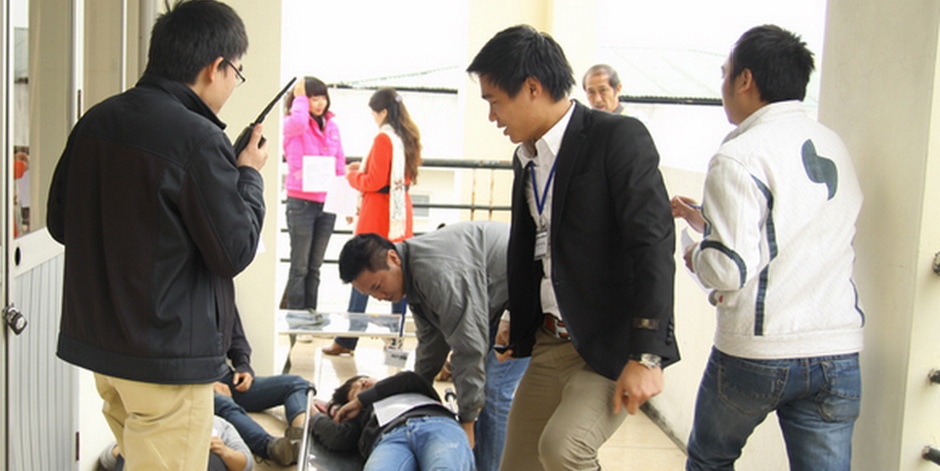Survival skills – Weakness of Vietnamese students
Hanoi, Vietnam
Although a student class should be knowledgeable and well-trained in the skills and techniques to survive
disasters and support others, the reality is completely opposite. When being asked questions on how to
survive a disaster, confidence is rarely seen and they are confused and unsure about their answers.
In a small-scale survey conducted in some universities in Vietnam to assess student’s survival skills in
emergencies, one interviewee timidly admitted; “To be honest with you, my knowledge about this sphere
is dramatically lacking. I do not know the proper ways to escape from a fire in a building, let alone help
others ”. Causes of this lack of knowledge could be the shortage in faculties and syllabus of
prevention subject at schools and universities. The carelessness and dismissal of the subject by students
could be another reason.
Realizing this lack, the Vietnam government has made a lot of tireless attempts at promoting collaboration
with international organizations like ADPC, SPHERE to provide basic information and train people to work in
education programs in recent years to raise awareness of disaster resilience.
Additionally, there are more periodic disaster prevention events held with the participation of many
accomplished researchers, which will definitely make classes that students will more useful and practical,
not only academic. Vietnamese students will gain experiences, skills and have a lot of opportunities to
transform knowledge into practice.Consequently, they can cope with atrocious disasters better and more
swiftly,which will minimize the impact of unexpected natural phenomenon and build resilience in Vietnam.


